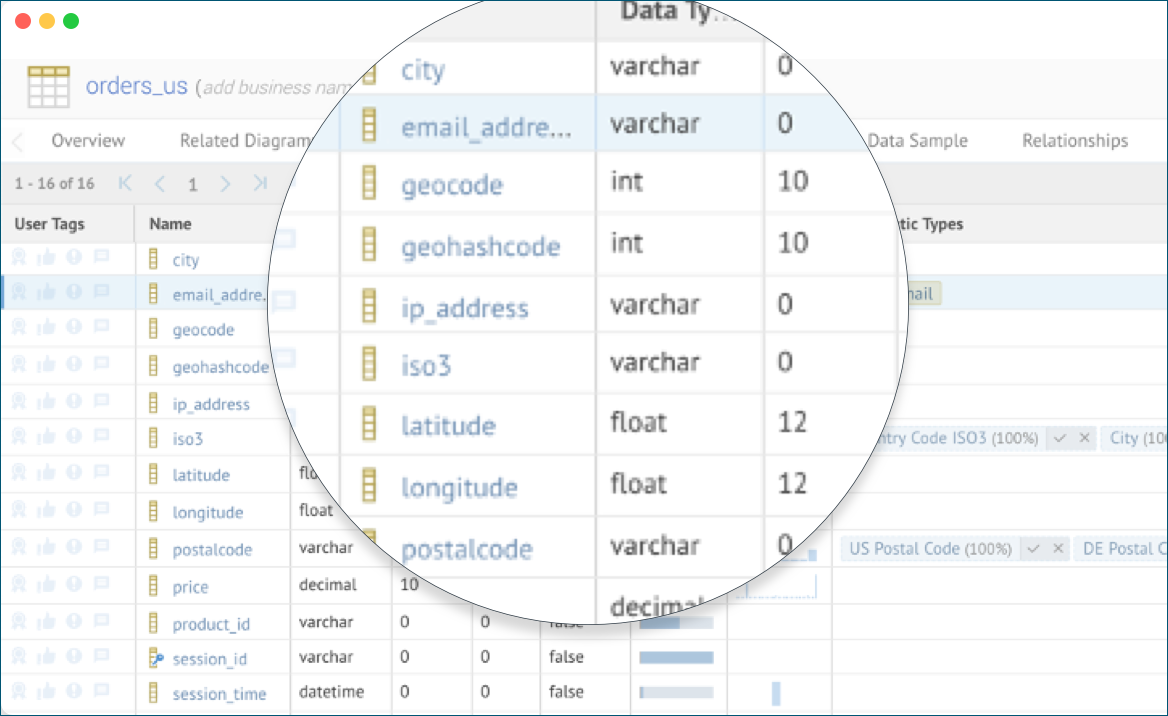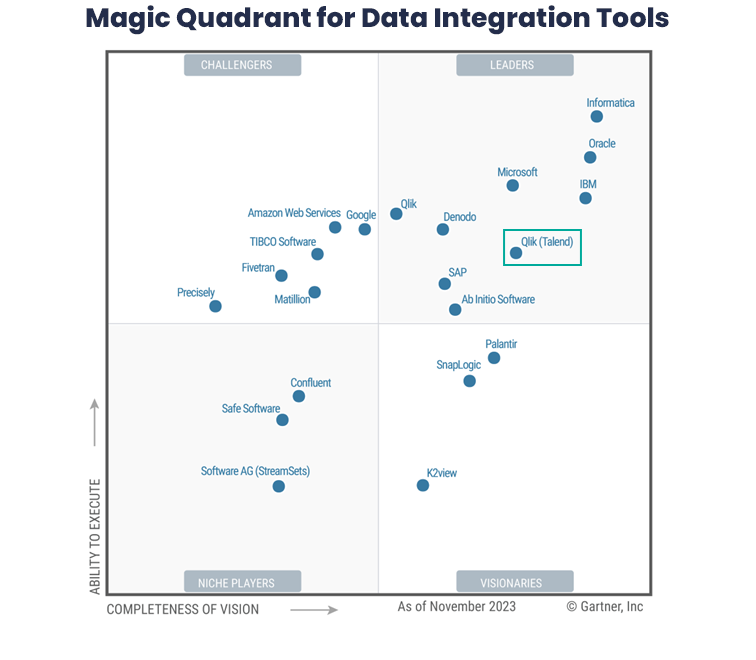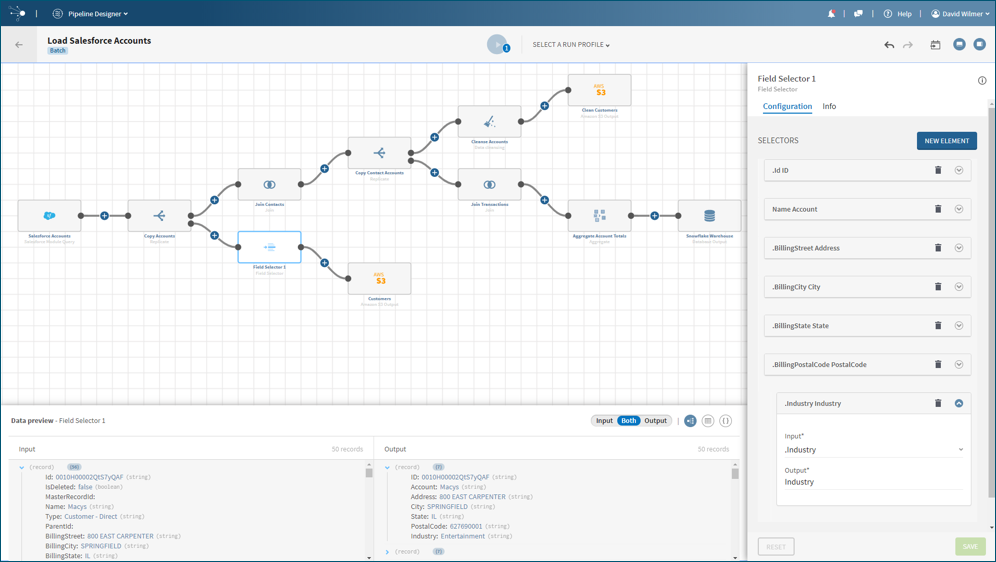In a dynamic technological environment, data has become a key resource for organizations. Not only collecting a large amount of data, but also understanding it properly, is an important challenge. Data integration is a key element here, a humble hero that combines various data sources into a consistent whole. Qlik Talend introduces new capabilities by offering advanced tools and solutions for seamlessly combining, transforming and using data. Read the article to find out what Qlik and Talend can offer companies that hope to be data-driven pioneers.
What is data integration?
Data Integration is the process of merging information from different sources to create a coherent dataset that allows users to easily access a variety of information and meets the needs of different applications and business processes. This is an important element of data governance, especially in the context of the growing need to integrate large data sets such as data warehouses, data lakes or data lakehouses.
This process is known as ETL and involves several steps, such as:
- Extract – data extraction: retrieving data from various sources such as databases, files, applications, web services, etc.
- Transform – data transformation: converting and standardizing data into one format and structure to ensure consistency and compatibility. This may include cleaning, filtering, aggregation, and data enrichment.
- Load – data loading: transferring processed data to the target system, e.g., a data warehouse, data lake, or analytical database, where it is stored and made available for analysis and reporting.
Data Integration experts design tools and platforms to facilitate the automation of this process, enabling data to be effectively combined and redirected from different source systems to the target ones.

Elevate Your Data Strategy
Our customized Data solutions align with your business objectives. Consult with Marek Czachorowski, Head of Data and AI Solutions, for expert guidance.
Schedule a meetingWhy is data integration so important?
Organizations often struggle with huge and complex sets of data from a variety of unrelated sources – advertising platforms, CRM systems, marketing automation tools, web analytics, financial systems, partner data, and even real-time data. Without data integration, analysts and developers would have to spend many hours preparing data for each report, which would make it impossible to combine all this information to achieve the final result. Data integration is crucial for companies that want to understand their data and make informed decisions on that basis. It allows them to improve data quality, increase operational efficiency, and support innovation.
With integrated data, organizations can better understand their customers, identify trends, optimize processes, and respond quickly to changing market conditions.
Ultimately, data integration breaks down data silos and enables analysis and operations based on a single, trustworthy, centralized data source that you can rely on.

What is the Talend tool?
Now that I have explained why data integration is so important, it is time to move on to specific solutions that make this process easier. One of them is the Talend platform, whose manufacturer specializes in data integration and management software.
Talend offers a unique end-to-end platform that combines advanced capabilities to integrate data from different systems and applications and clean them up, thus providing the ability to manage them in different cloud, hybrid, or multi-cloud environments.

DATA ANALYTICS SERVICES
Use data to your advantage
Discover our Data Management End-to-End offer! Find out more!Qlik and Talend join forces
Qlik announced the acquisition of Talend on May 16, 2023, expanding the opportunities for modern enterprises to access, transform, and analyze data. Qlik’s high priority strategic project has been finalized, so now Qlik can deliver best-in-class integration, data quality, and analytics solutions.
“Qlik, together with Talend, will bring significant benefits to customers, including expanded product offerings, enhanced support and services, and increased investments in innovation and R&D,” said Mike Capone, CEO of Qlik.
“Qlik’s broad expertise in data integration, analytics, AI and machine learning combined with Talend’s data integration and data quality solutions, will provide customers the most comprehensive solution in the industry”.
Expert insight
Szymon Serwin, Qlik Technical Leader:
“Qlik is famous for the fact that if they decide on any form of cooperation, partnership or merger of companies, they do it with the potential for its customers in mind. In this case, Talend brings capabilities to work with data properly prepared “at a lower level” than the data visualization layer represented by the flagship product, which is Qlik Sense. This allows you to correctly prepare the data and thus relieve Qlik itself from tasks related to the ETL layer and shift attention to the interaction of the tool directly with the end user.
This is especially important in the context of the increasingly popular Qlik Cloud, which has some limitations when it comes to the volumes of individual applications. Therefore, Talend will allow Qlik to better serve not only huge corporate environments, where the multitude of data sources and their volume require mandatory integration and appropriate preparation, but also smaller environments based 100% on Qlik Cloud. In my opinion, this transaction is a hit, which will allow for even greater complementarity of Qlik’s offer”.
Talend (Qlik) in the Gartner ranking

After the merger, Qlik + Talend holds a leading position in many market categories. For seven years in a row, Talend was among the leaders in Gartner’s Magic Quadrant for data integration tools, and in five consecutive years it was among the leaders in the context of data quality solutions.
Qlik, in turn, has been a leader in the Magic Quadrant in the categories of analytical platforms and Business Intelligence for 13 years in a row. In addition, Qlik was recognized as a leader in the IDC MarketScape ranking: American Business Intelligence and Data Analytics Platforms in 2022.
According to Gartner, Talend offers a rich set of data integration capabilities, including CDC (Change Data Capture), which refers to tracking changes in data sources. It also allows organizations to gain consistency of information. Thanks to the capabilities associated with working in the cloud, it is popular among companies with hybrid or multi-cloud systems. Its technology platform supports various roles within the organization, as well as providing data cataloging.
Talend Data Fabric uses metadata analysis to provide developers with easy access to key data quality information. Thanks to the “trust score” function, users receive a clear assessment of the importance, completeness, discoverability, and popularity of various data sets in the Talend Data Inventory module.
Additionally, various products within the Talend platform offer quality-related features, such as semantic-based data quality assessment, to make it easier for users to work with data at every stage of the process.
Talend is constantly developing its CDC capabilities, focusing on providing solutions for complex topologies, enabling real-time data sharing between enterprises and database synchronization.
Read also: Qlik Sense SaaS. Cloud Analytics for enterprises
Where is the Talend strategy heading?
The Qlik Talend roadmap covers several key areas that will have a significant impact on the development roadmap.
- Expand data integration capabilities – the main goal is to continuously expand data integration capabilities to provide customers with comprehensive tools to combine data from different sources. At the same time, there is a focus on improving data quality to ensure accuracy, consistency, and readiness for analysis.
- Working in the cloud – the development of cloud capabilities is also an important element of the strategy, which will allow customers to remain flexible and scalable in data management. One of the key partners is Microsoft, where Talend offers hundreds of connectors and components for data storage and management.
- Integration with business tools – it is no less important to facilitate integration with analytical tools so that customers can gain insight into valuable data. Currently, Talend provides connections to applications such as Salesforce, Workday, Dynamics 365, Google Analytics, and others.
- Research & Development – another strategic goal is to continuously invest in research and development to introduce innovative solutions that will address the growing needs of customers and changing technological trends.
Summary
Currently, many products are available on the data analysis tools market, albeit none of them alone are able to fully respond to the growing data analysis needs.
In its vision, Qlik focuses on innovation, continuous development, facilitating work in the cloud, and better integration of tools. The acquisition of Talend enriches Qlik’s offer with solutions for integration and good quality data in the cloud, strengthening the company’s position as a leader in these areas.
With the combination of Qlik and Talend, customers can eliminate technical costs while ensuring that their data is available at key decision-making moments.
Consult your project directly with a specialist
Book a meeting


